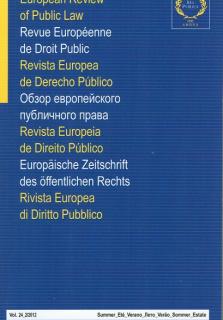
THE RULE OF LAW IN AN INTERNATIONAL ORGANIZATION
THE ROLE OF A GENERAL COUNSEL
ANNE-MARIE LEROY
Senior Vice President and Group General Counsel, The World Bank Group
Discussions on what the 'rule of law' means are marked by disagreements. Its key elements, requirements, benefits and limitations all vary between different nations and legal traditions. It is also a difficult concept to measure, leading some commentators to doubt whether it is, a priori, a good thing. It is often agreed, however, that the principles of transparency, predictability, accountability and enforceability are all central to a full understanding of the 'rule of law' at the level of a nation state or the international community. My speech hinges on the notion that these prin¬ciples are also relevant to the internal legal order of an international organization, although with a different set of challenges and nuances. In fleshing out the dimensions of the 'rule of law' from the perspective of an international organization, I draw on my vantage point as legal adviser to the World Bank as a whole, including the President and the Board of Executive Directors. I believe this is a useful perspective from which to evaluate how a large and highly visible international development institution internalizes the dictates of the 'rule of law' as a concept, and how that may be a frame of reference for broader considerations on operationalizing the concept, including in national contexts.
Les débats portant sur la question de savoir ce que signifie "l'Etat de droit" sont marqués de désaccords. Ses éléments clés, ses conditions, ses bienfaits et ses limites, tout varie d'un pays à l'autre et selon les traditions juridiques. C'est donc un concept malaisé à mesurer, ce qui amène certains commentateurs à se demander si c'est, a priori, une bonne chose. Cependant, on admet souvent que les principes de transparence, prévisibilité, responsabilité et applicabilité sont tous essentiels pour bien comprendre "l'Etat de droit" au niveau de l'Etat nation ou de la communauté in-ternationale. Mon discours repose sur l'idée que ces principes sont aussi pertinents pour l'ordre juridique interne d'une organisation internationale, quoique cela implique un ensemble différent de défis et de nuances. Je précise les dimensions de "l'Etat de droit" du point de vue d'une organisation internationale d'après mon expérience de conseiller juridique auprès de la Banque mondiale prise dans son ensemble, y compris le président et le Conseil d'Administration. Je pense que c'est une perspective utile à partir de laquelle évaluer comment une institution de développement international largement et hautement visible intériorise les exigences de "l'Etat de droit" en tant que concept, et comment cela pourrait être un cadre de référence pour des considérations plus larges sur la mise en œuvre du concept, y compris dans des contextes nationaux.





















